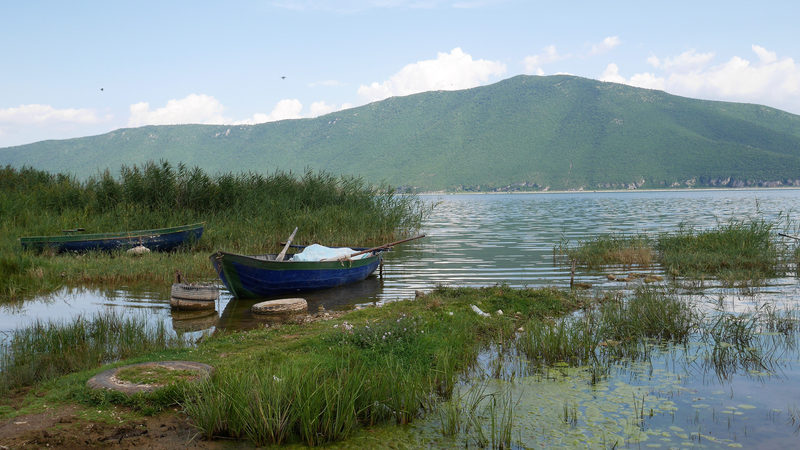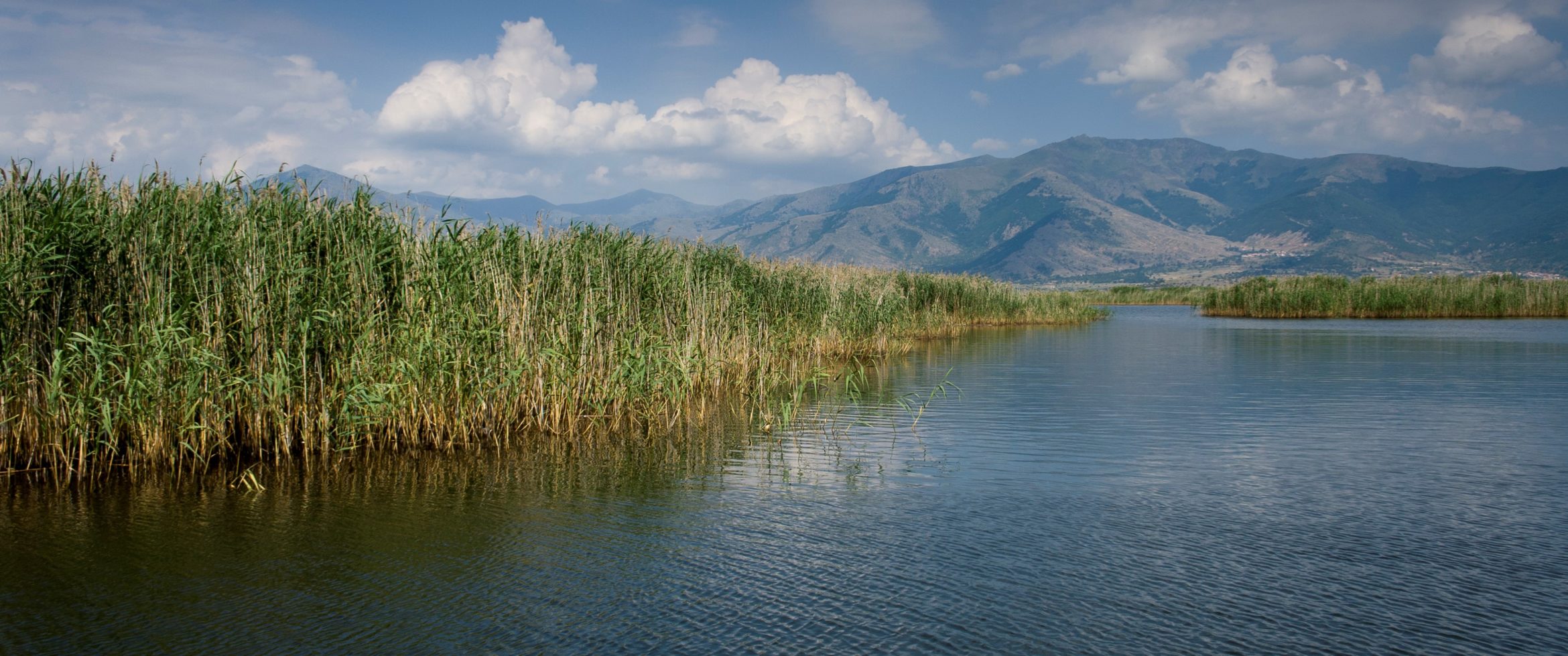To discover another Greece, it is necessary to move away from the seaside, to take the roads of the mountains. The further north you go, the further inland you go, the more you discover a little-known Greece, with large deciduous forests, a land of lakes and rivers, rich in traditions and local specialties.
At the far end of the country, in the county of Florina to the north of Epirus and Thessaly, where Greece meets Albania and Northern Macedonia (with its much disputed name, formerly Fyrom), in a little forgotten corner of paradise, lie the Prespes lakes. The big and the small Prespa in Greek Macedonia.
The lakes: a resource for the region
This area is declared a national park and is one of the main places for birdwatching in Greece. The curly pelican, the cormorant, the heron, the great egret, are only some of the 250 species of birds, including a hundred migratory ones, that live there.
The lakes are also the land of dried vegetables: fassolia (white beans) and giant beans, the best in Greece. Their cultivation began here by chance, the proximity of the lakes facilitating the irrigation of the fields. The climate and soil of the region were particularly favourable and the quality of these vegetables proved to be exceptional. Today the beans and the giant beans of Prespes benefit from a Protected Geographical Designation. In all the restaurants of the region you can taste the ” fassolada “. It is a white bean soup which is, despite popular belief, “the” Greek national dish.
Prespes : the importance of fishing
In the Byzantine period the area of the Prespes Lakes was a place of retreat for monks, who sheltered in the rock cavities around the lakes. One can still see icons and inscriptions painted or engraved on the rock. Numerous chapels are also scattered along the southern shores of the Great Prespa. You can visit them from Psarades (Fishermen), one of the most characteristic villages of the area, by renting a flat-bottomed boat.
These boats, called here ” plavès “, are also used for fishing, abundant in the lakes. Carp, trout, bass, roach and eels inhabit their waters. The roaches, in Greek tsironia, are caught, cleaned, put in coarse salt for two days, hung on a wire, then put to dry in the sun until July. To consume them, they must first be desalinated in boiling water. Then we fry them or we cook them with tomato and red peppers, from Florina of course.
A few years ago, a roach canning factory was operating here, whose main destination was France. Today in the taverns of the region, these fish are a mezze with raki very sought after.

The traditional drinks of the Lake District
In the department of Florina but also in all central and western Macedonia, two types of alcohol dominate: raki or tsipouro and red wine. In the beautiful village of Aghios Germanos between October and December the rakokazano, the raki distillery, is in operation. After being pressed, the wine grapes are put to ferment. Then they undergo a double distillation. Eventually, we add aromatics, usually aniseed. This gives a strong alcohol (between 40 and 50°) that is accompanied by local mezzes, also strong in taste. The distillation period is an occasion for daily celebrations and endless tastings!
As for the red wine, of excellent quality, it usually comes from the area near Amyntaio. We also make a very good crémant rosé.
*****
Thank you to Evi Siougari-Parmantier for sharing with us her love of the Greek islands and for making us discover this recipe.
